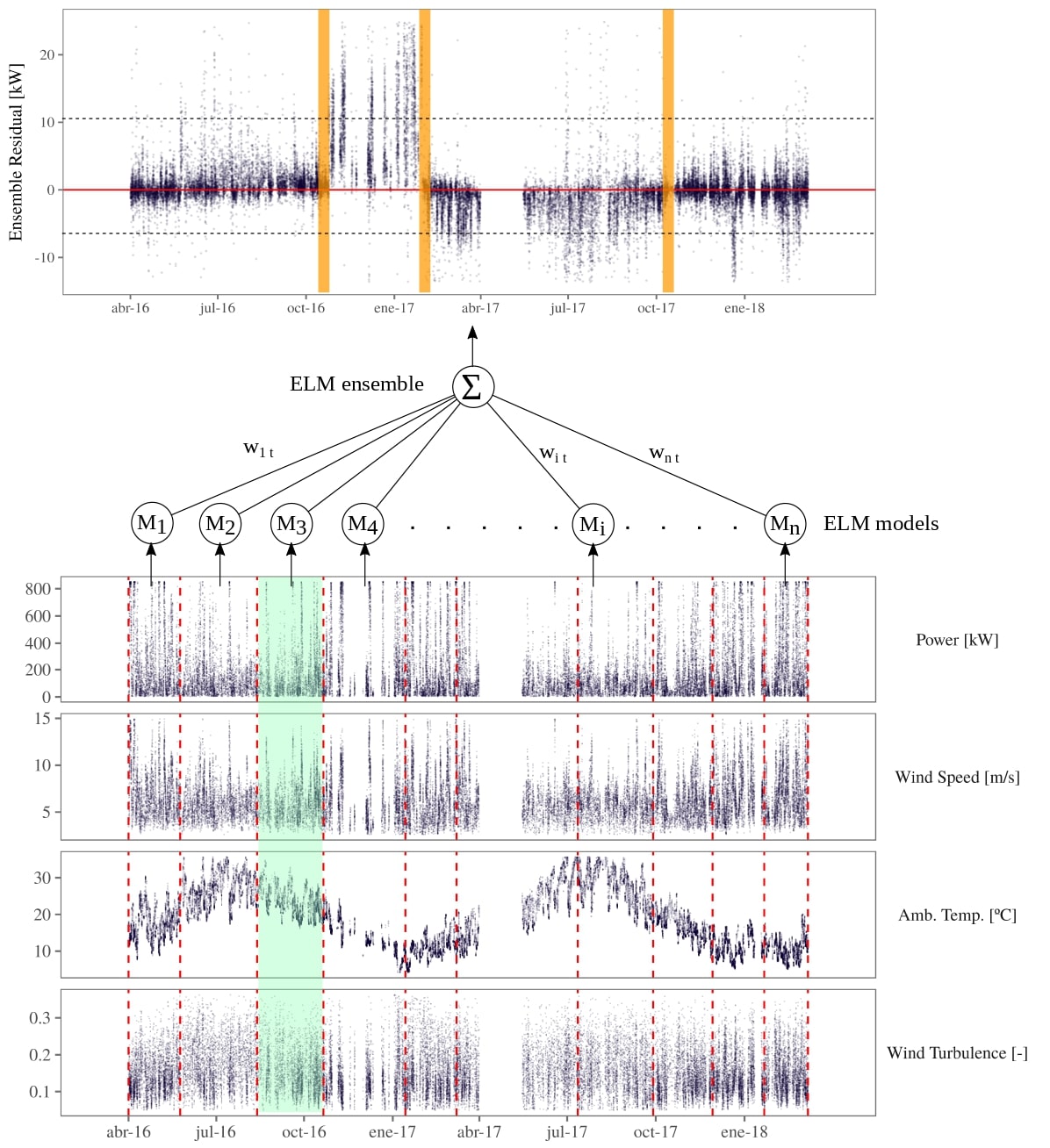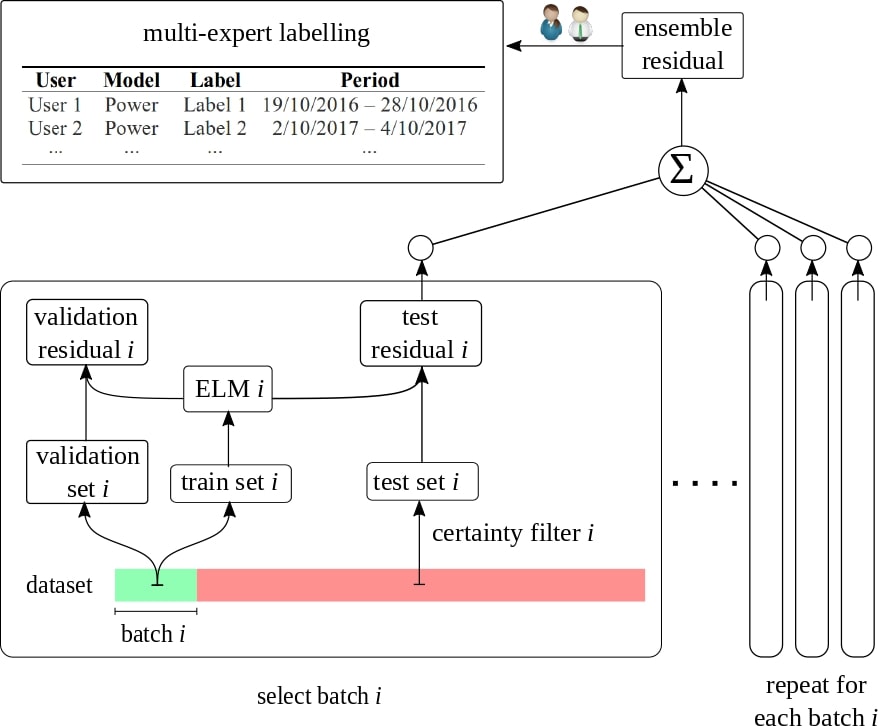A failure detection system is the first step towards predictive maintenance strategies. A popular data-driven method to detect incipient failures and anomalies is the training of normal behaviour models by applying a machine learning technique like feed-forward neural networks (FFNN) or extreme learning machines (ELM). However, the performance of any of these modelling techniques can be deteriorated by the unexpected rise of non-stationarities in the dynamic environment in which industrial assets operate. This unpredictable statistical change in the measured variable is known as concept drift.
In this article a wind turbine maintenance case is presented, where non-stationarities of various kinds can happen unexpectedly. Such concept drift events are desired to be detected by means of statistical detectors and window-based approaches. However, in real complex systems, concept drifts are not as clear and evident as in artificially generated datasets.
In order to evaluate the effectiveness of current drift detectors and also to design an appropriate novel technique for this specific industrial application, it is essential to dispose beforehand of a characterization of the existent drifts. Under the lack of information in this regard, a methodology for labelling concept drift events in the lifetime of wind turbines is proposed. This methodology will facilitate the creation of a drift database that will serve both as a training ground for concept drift detectors and as a valuable information to enhance the knowledge about maintenance of complex systems.
Date |
Apr 2018
Tags |
#concept drift
#anomaly detection
#energy
#wind turbine
#condition based maintenance
#labeling
#machine learning
Technologies |
r
·
keras
·
tensorflow
·
python
·
pandas
·
numpy
·


Related projects